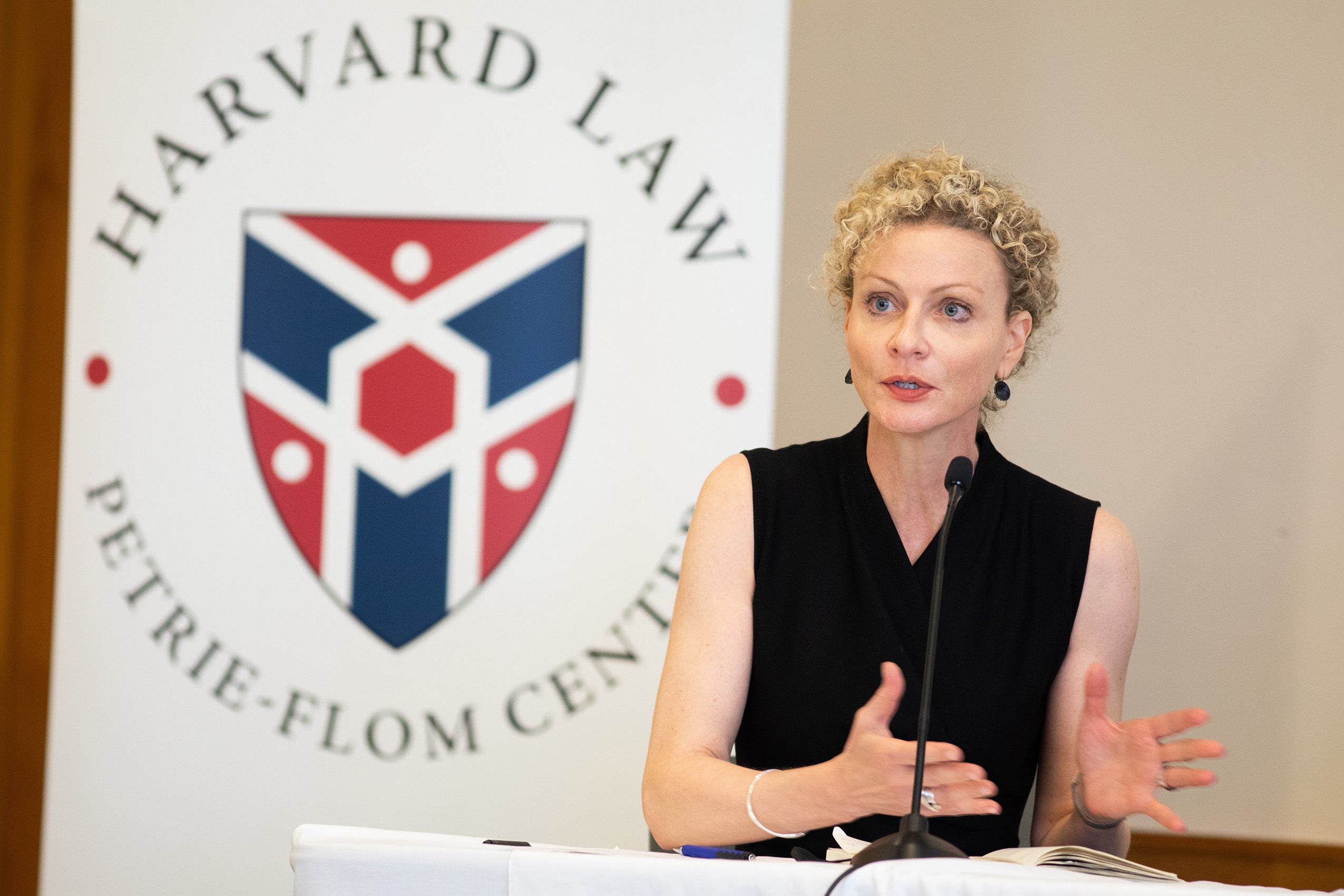Mexico has witnessed heated political and legal mobilization by both progressive and conservative forces regarding the issue of abortion in recent years. Harvard Law School recently welcomed two justices from the Mexican Supreme Court of Justice to discuss recent decisions affirming access to abortion in their country. Justice Gutiérrez Ortiz Mena LL.M. ’98 and Justice González Alcántara Carrancá discussed the holdings, implications, and context for the rulings. The justices were joined by Judge András Sajó, retired vice president of the European Court of Human Rights, as well as other experts on providing sexual and reproductive health services in challenging contexts.
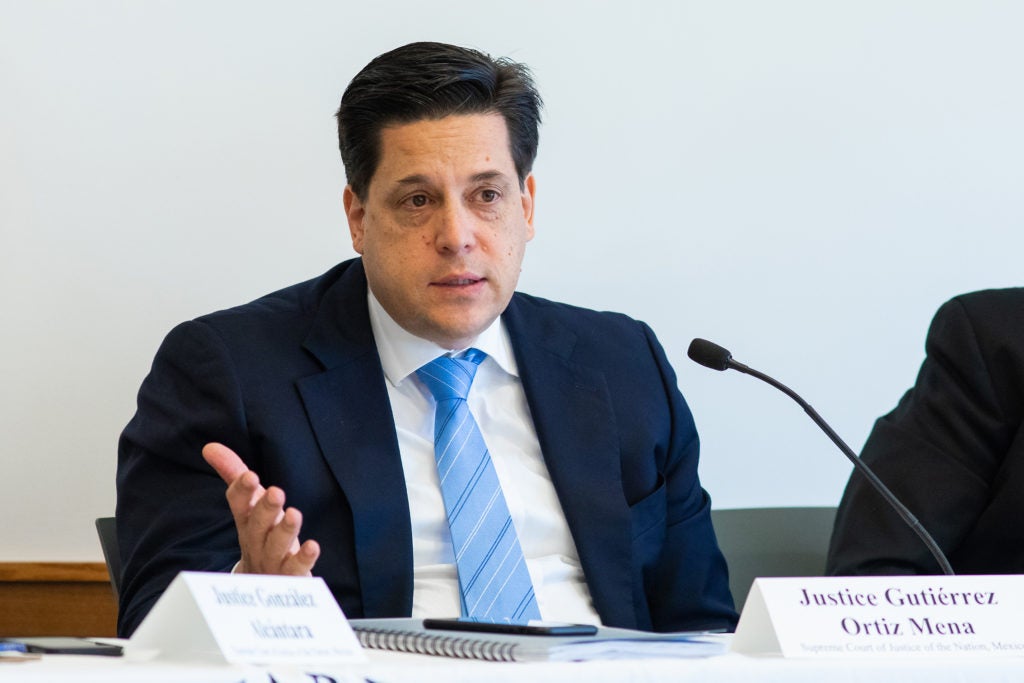
Justice Alfredo Gutiérrez Ortiz Mena, of the National Supreme Court of Justice, Mexico.
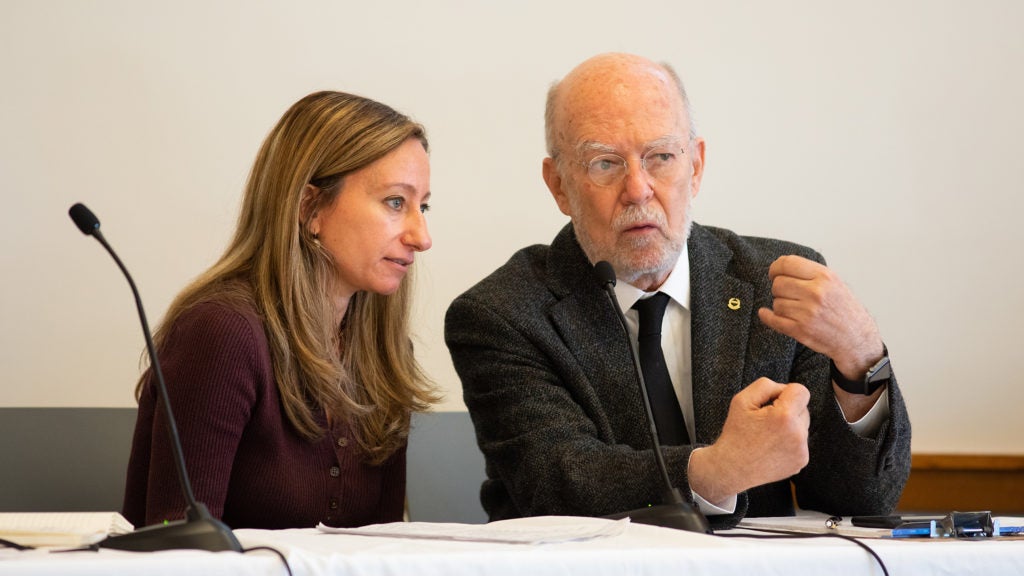
Justice Juan Luis González Alcántara Carrancá of the National Supreme Court of Justice, Mexico, with Cristina Alonso, founding member and president of the Mexican Midwifery Association (2014 to 2017), and founder of the Mexican Network of Midwifery Centers. An afternoon panelist, Alonso offered her impromptu services as an interpreter for the justice during the morning session.
As Mexican Supreme Court of Justice clerk Adriana Ortega Ortiz wrote in advance of the event, the justices were asked to consider if “denial to provide abortion services due to health risks in a government-run health facility” violated women’s constitutional rights. In making their decision, the justices looked at several important questions. The constitution guarantees a right to health, but does that include abortion care due to health risks? Are both public and private health care facilities required to perform the procedure, free of charge? What types of “health” are protected by the constitution: physical, mental, or social health?
[pull-content content=”
Adriana Ortega Ortiz: How to understand the Mexican Supreme Court Decision Regarding Abortion Based on Health Risks
In Mexico, abortion is a state-law matter. It is considered a crime in most of the Mexican states except for Mexico City and Oaxaca where abortion is permitted within the first trimester of the pregnancy.
In the rest of the states abortion is allowed under limited legal indications: rape, health risks, danger of death, fetal impairment, and distressing economic situations. The legal indications are similar but not identical in the Mexican territory. The only legal indication for abortion that applies in every state is rape.
In this context, what makes the recent abortion ruling of the Mexican Supreme Court important?
In his keynote speech, Justice González Alcántara Carrancá summed up the questions: “Does removing the right to choose abortion violate the right to health or bodily autonomy? Can we stop women from making decisions about spacing their pregnancies, or making decisions about their intimacy?”
The court answered that question explicitly: The constitution guarantees the right to health and autonomy and, therefore, abortion. Justice Gutiérrez Ortiz Mena explained the justices’ decision to affirm the right to abortion, as the constitution protects the “right to live as one wishes, well and without humiliation. That is autonomy.”
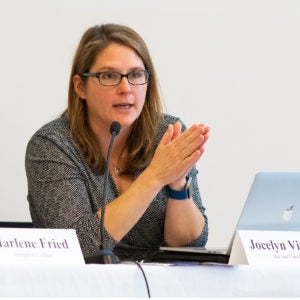
Jocelyn Viterna, professor of Sociology and director of Undergraduate Studies at Harvard University.
Harvard sociology Professor Jocelyn Viterna provided further social and historical context for the decision, sharing two stories of women in El Salvador who delivered babies in latrines, not knowing they were pregnant. One of the women was wrongfully charged with abortion—a crime in the country—and then attempted aggravated homicide. She served 19 years in prison. Challenging contexts in which abortion is criminalized make it difficult to provide reproductive health care to women and to ensure they are not charged with crimes for seeking help in the cases of unforeseen pregnancy, miscarriage, or stillbirth.
Petrie-Flom Center Senior Fellow Alicia Ely Yamin ’91 explained the importance of organizing the event: “Abortion is a flashpoint not only in the U.S. but around the world, and understanding what is happening elsewhere can give us new insights into the dynamics of legal and political mobilization here. This event was an exceptional opportunity to hear two sitting justices on the Mexican Supreme Court of Justice candidly discuss that court’s evolving approach to expanding exceptions to criminalization and possibilities for grounding a right within the federal constitution.”
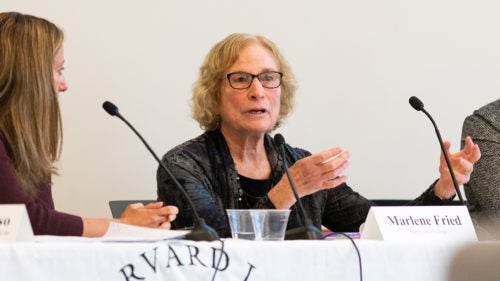
Marlene Fried, professor of philosophy and faculty director of the Civil Liberties and Public Policy Program at Hampshire College.
Yamin added, “Having Professor András Sajó, former vice-president of the European Court of Human Rights, participate in the event provided a fascinating perspective on what he termed the ‘laissez-faire,’ process-oriented approach of the supra-national tribunal in relation to abortion cases.”
Following the event, the justices were joined by András Sajó and panelists for a lunch with Harvard students from the Mexican Law Students Association and Health Law Association. Christian Hernández Lara LL.M. ’20, president of the Mexican Law Students Association, said she’d been eager to talk to the justices about different issues concerning Mexico and to know their perspective. “They welcomed our opinion and were very open to talk to us about our concerns. It was a great experience.”
Eduardo Espinosa de los Monteros Pereda LL.M. ’20, secretary of the Mexican Law Students Association, said he relished “being able to have a one-on-one conversation with two justices. We not only learned about their legal criteria, but also heard some amazing stories of life as a justice.” He felt hearing directly from the justices helped him get to know them more: “You can better understand the way a justice resolves, opines, and votes any certain issue when you understand his background and his ideological viewpoints as an individual, rather than as a member of a judicial body.”
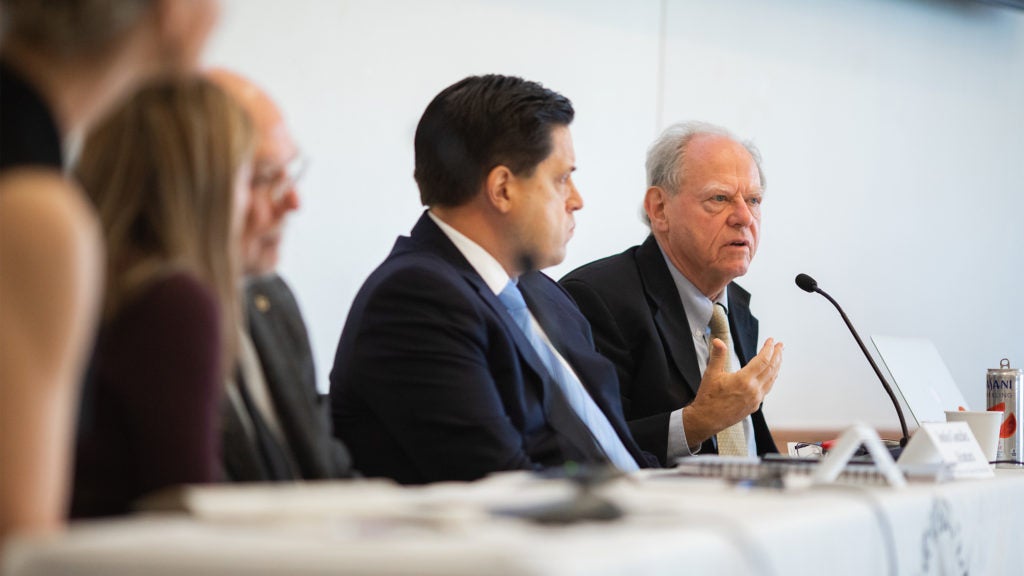
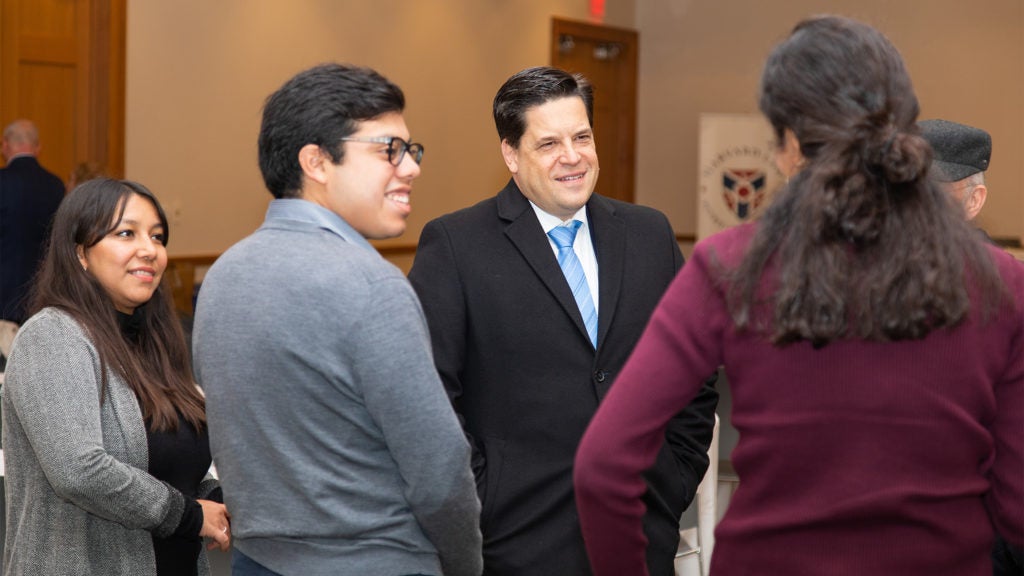
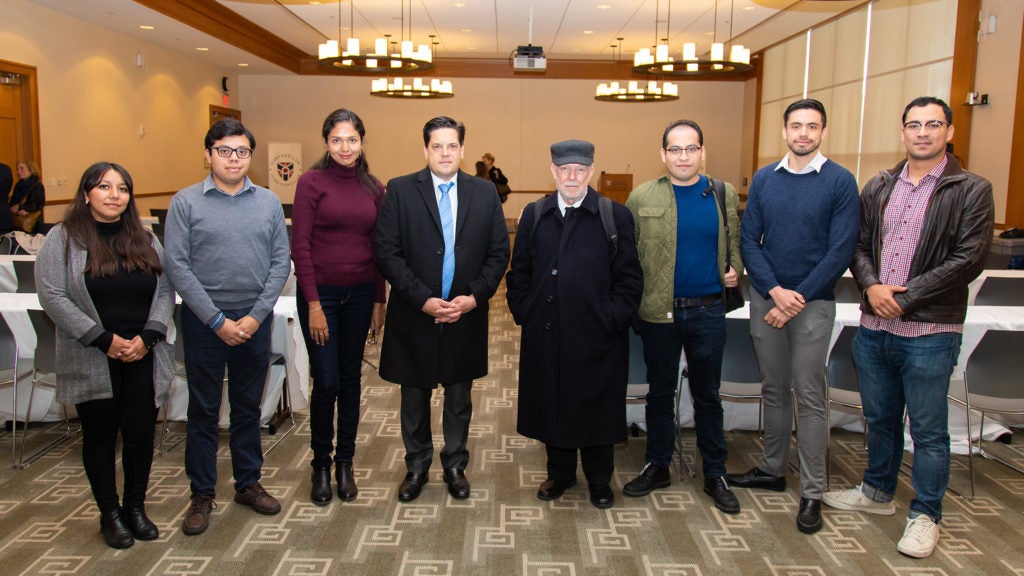
The event was part of the Global Health and Rights Project (GHRP), a collaboration between the Petrie-Flom Center for Health Law Policy, Biotechnology, and Bioethics at Harvard Law School and the Global Health Education and Learning Incubator (GHELI) at Harvard University, with support from the Center for Bioethics at Harvard Medical School and the Oswald DeN. Cammann Fund at Harvard University.
Related Reading
In addition to Mexican Supreme Court of Justice clerk Adriana Ortega Ortiz, other scholars weighed in in advance of the conference with posts on the Petrie-Flom Center’s blog, Bill of Health:
Patricia del Arenal Urueta: Amparo en Revisión 1388/2015 and the “Rights” Discourse in Mexico
David García Sarubbi: The Fundamental Right to Health and Judicial Review in México
